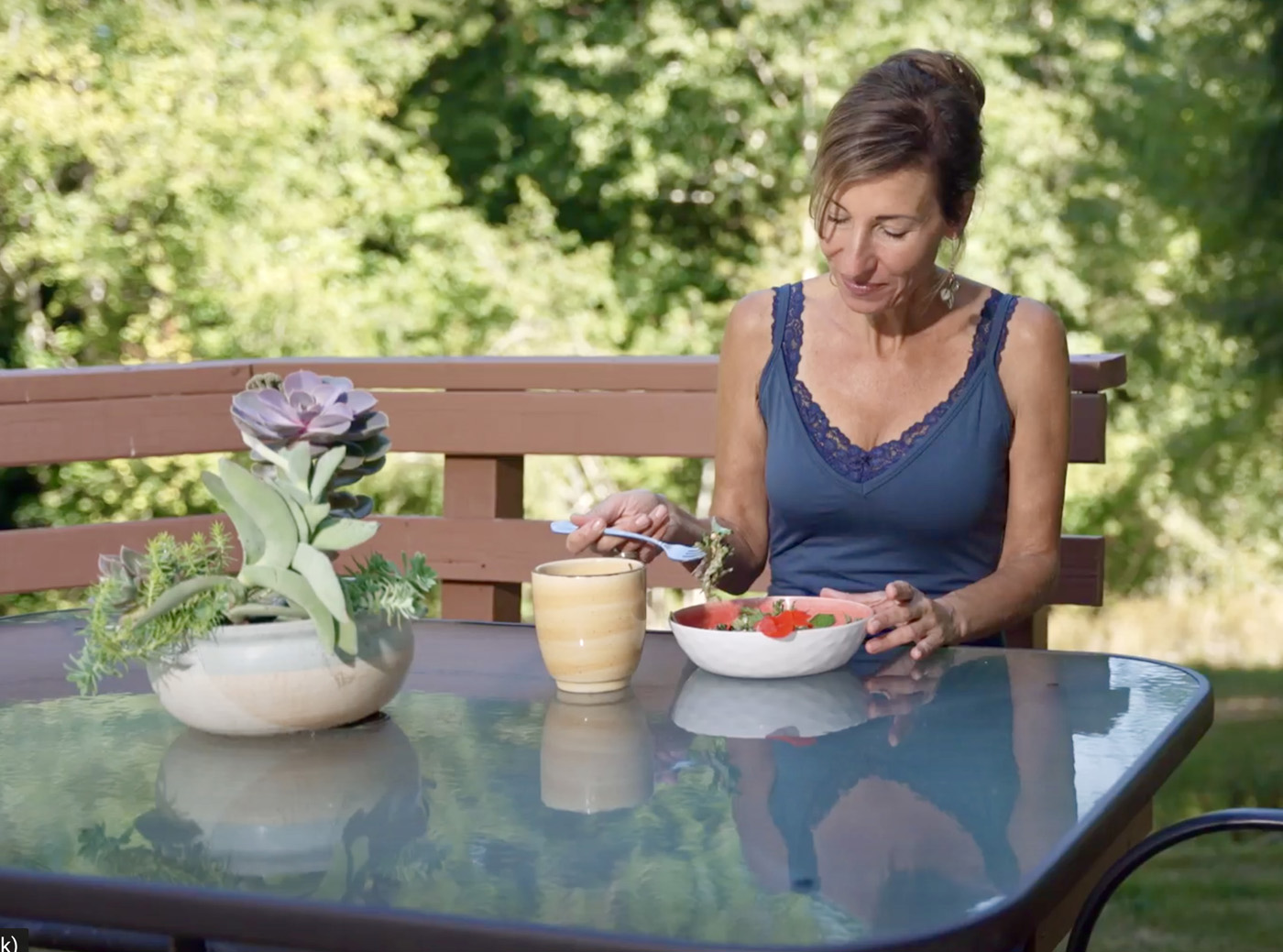The Nature of Grief
Grief is an aspect of life that we can’t avoid — at one point or another, all of us have experienced it. Some seem to heal quickly from the impact of grief, while others need more time. Whichever is the case, it is important to know that we all have our own journey along this path and there is no “right” way to grieve. But we should be aware of the health-impacts of extended grieving and how to navigate these trials in a healthy way. One method is to learn how to turn our grief into strength.
The Dangers of Long-Term Depression and Grief
Intense feelings of sadness are normal when we have experienced a significant loss or shock — from losing a beloved pet or a job to the death of a family member, grief can enter into our lives unexpectedly. Depression is common when we are grieving. Research has shown that up to 50% of widow or widowers become depressed during the first several months of losing a spouse. Once they have reached the one-year mark, the rate of depression drops to 10%.1 Symptoms of depression include loss of appetite, low energy, brain fog, severe hopelessness, insomnia, and suicidal thoughts. Those who are depressed tend to withdraw from their social connections and self-isolate. You stop taking care of yourself and lose interest in eating properly, exercising, or other methods of self-care. This can lead to a significant negative impact on your health.
When we grieve for an extended period of time, sadness and depression suppress the immune system, further impacting our health. Moreover, studies have found that those who are socially isolated have poorer health outcomes.2 Needless to say, when we are grieving and/or depressed, caring for ourselves and reaching out to others is not only important for healing, but also for our health and wellbeing. Please see my post, “Grief and the Nature of Loss: How to Find Comfort, Hope, and Healing” for tangible ways to navigate the journey of grief in a way that will support mind, body, and soul.

Building Resiliency and Strength Through the Trial of Grief
I think most of us can agree that we would rather avoid grief in our lives altogether if we could. But through my own journey of deep grief upon losing my dearly-held stepson, I have come to realize that grief often helps to build a sense of resiliency, strength, and connection in our lives, which leads to increasing feelings of hope.
In my personal experience, when a parent loses a child, you are instantly connected to every parent who has also had this same extreme loss. Even though each of us experience grief differently, there is a common thread that unites us — our humanity, which includes being able to empathize with another who is struggling with loss. This is especially true for parents grieving the death of their child. In time, we are able to support others through this shared connection and know that we are able to relate on a very deep level to their experience. Through our past journey of grief, we can comfort and help others navigate their own losses with gentleness and love.
While there is plenty of information on the different stages of grieving, “complicated” grief, and other clinical observations, we can sometimes miss aspects of the journey that include hope, gratitude, kindness, and courage.
Martin Seligman, Director of the Penn Positive Psychology Center and Professor of Psychology in the Penn Department of Psychology, points out that when people experience adversity the most frequent response is resilience, not trauma. And positive emotions are strongly associated with building resiliency when faced with difficult life situations. Lucy Hone, Ph.D., an adjunct senior fellow at the University of Canterbury (NZ) and author of “Resilient Grieving: Finding Strength and Embracing Life After a Loss that Changes Everything”, believes there are three fundamental strategies for resilient grieving. She applied each while grieving from the sudden loss of her 12-year-old daughter, Abi.
The first is to accept the good. Even during the darkest days of grief, we can still navigate the journey in a way that recognizes the good that is still present within our lives. As I have written in a number of articles, abundant research has shown that the practice of gratitude has a significant, positive impact on our wellbeing. In psychology, this is called “benefit finding”.
Next is searching for positive emotions. A study conducted by researcher Barbara Fredrickson investigated the response to 9/11 by U.S. college students and found that some were more resilient than others against depression and despair.3 What her team found was that experiencing positive emotions was a key factor in residency. In response, Fredrickson put together a list of these emotions, which includes cultivating serenity, awe, hope, love, inspiration, pride, and humor in our lives.
Hone consciously worked to bring more of these positive emotions into her life and shares her experience in the article, “What I Learned About Resilience in the Midst of Grief”:
“I asked friends to accompany me on day-long walks that would draw me out of the cluttered world of the city and reconnect me with nature. Standing amid towering mountain peaks returned a measure of serenity and filled me with awe. Making myself feel small and insignificant somehow fueled my belief that we could fight this battle and would emerge out the other side. I sought out movies that would inspire me, listened to the Desert Island Discs podcast to fill me with hope, and watched my boys play music and sports to give me a sense of pride.”2
The third strategy is to create routines and rituals that keep the memories of our loved ones alive. Hone discovered the work of researchers Michael Norton and Francesca Gino who study the importance of rituals while grieving. By participating in rituals we are given a feeling of control and experience lower levels of grief. There are many ways we can remember those we have lost. For Hone, it was remembering Abi by wearing her cardigan when the weather is cool, enjoying a bag of Abi’s favorite potato chips, and taking her old school bag with the family on holidays to “share” our vacation experience with her. For me, it is telling funny stories of my son around a fire, sharing memories with his younger brothers, keeping in touch with his good friends (he was an adult when he died), and feeling his presence when I’m in nature.
Often people will plant a remembrance tree for their loved one, while others find cultivating a garden in memory of the deceased helps them to heal by bringing forth life after their loss.
Herbal Support
When we are grieving, our nervous system is under a tremendous amount of stress and it is important to protect against it from becoming chronic. My Anxiety & Stress tincture helps to soothe the stress response and calm the nervous system. Sleep is often disrupted as well when we are grieving. A sense of overwhelm can soon follow when we are experiencing insomnia. My Sleep Blend can help to ease this disruption and encourage deeply needed rest. You can learn more by visiting the apothecary.
Closing Thoughts
Even though none of these strategies will completely take away the pain of traumatic loss, they can help to build strength, resiliency, connection, and hope as we grieve.
It is my sincerest wish that these ideas will help to bring you healing and comfort as you face your own journey of grief.
Nicole Apelian
Nicole’s Apothecary Products in this Post
References
-
“Grief can hurt — in more ways than one. Harvard Health Publishing, Harvard Medical School. February 1, 2019. https://www.health.harvard.edu/mind-and-mood/grief-can-hurt-in-more-ways-than-one
-
“What I Learned About Resilience in the Midst of Grief”, Lucy Hone. Greater Good Magazine: Science-Based Insights for a Meaningful Life. February 19, 2020. https://greatergood.berkeley.edu/article/item/what_i_learned_about_resilience_in_the_midst_of_grief
-
Fredrickson BL, Tugade MM, Waugh CE, Larkin GR. What good are positive emotions in crises? A prospective study of resilience and emotions following the terrorist attacks on the United States on September 11th, 2001. J Pers Soc Psychol. 2003;84(2):365-376. doi:10.1037//0022-3514.84.2.365






